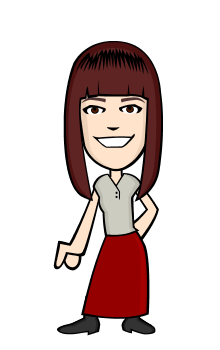
When you hear the term “Experimental Film” your mind might conjure the work of such filmmakers as Duchamp, Bunuel, and Cocteau – and others from the avant-garde movement of the early 20th century. These directors wove non-traditional narratives using mind-bending visuals and metaphors that have gone on to inspire directors for decades.
I’m not sure that my work fits into any traditional structure, but nor is it abstract enough to be considered “experimental.” However, I experiment all the time. I’ve just uploaded a film titled “Beauty and Her Beast” which was inspired by the shifting focus Lytro camera technology. I saw a demo of the camera and thought that might be an interesting way to tell a story. Check it out:
The focus shifts on one image as the narration tells the tale. I’m definitely manipulating the audience by giving them only one image and then telling them where to look, but at the same time I’m leading them to more questions. I’m really asking for their participation. It’s not perfected, but I’m on to something and I really like where it’s going. I plan to use this technique in a sequence of my upcoming film on the Snow Maiden – perhaps making the questions more defined, or the photo more full of mystery.
 The point is I’m experimenting, trying something new to see where it goes, and how it might influence a film I make in the future. I think a lot of exploration currently in film falls on special effects (CGI, motion capture, etc) and less on narrative structure or editing. Films like “Momento” or the recent “Anna Karenina” ask the audience to break from their comfort zone and watch something backwards or believe a horse race can take place inside a theater. They’ve taken a huge risk, but I commend them for it. Sometimes it works and sometimes it doesn’t. Regardless, I appreciate the effort, mainly because the idea of it not working didn’t stop the filmmakers from trying. Their films make me think, make me work – and above all make me believe anything in film is possible.
The point is I’m experimenting, trying something new to see where it goes, and how it might influence a film I make in the future. I think a lot of exploration currently in film falls on special effects (CGI, motion capture, etc) and less on narrative structure or editing. Films like “Momento” or the recent “Anna Karenina” ask the audience to break from their comfort zone and watch something backwards or believe a horse race can take place inside a theater. They’ve taken a huge risk, but I commend them for it. Sometimes it works and sometimes it doesn’t. Regardless, I appreciate the effort, mainly because the idea of it not working didn’t stop the filmmakers from trying. Their films make me think, make me work – and above all make me believe anything in film is possible.
“Beauty and Her Beast” relies on visual experimentation but that which is directly linked to narrative. That’s how I see it. And I truly believe this is the the most exciting path of film right now – there’s true creativity at work there. And I’d like to see more of it. (From “Inception” to “Piano Tuner of Earthquakes” the ideas are limitless)
My call is to indie filmmakers, actors, and funders to be more trusting of this concept. It’s ok to let your head hurt, or need to go back and watch again, or maybe not understand all the pieces – that’s where the wonderful mystery of storytelling comes in. The experience is what you make it. This isn’t passive cinema, it’s a lot more fun! When I tell someone in episode 3 of my upcoming web series I want to take Shakespeare’s “The Tempest” mix it with the myth of Persephone and shoot it all tableau style – the way they react tells me a lot about them. ![]() Not good or bad – just whether or not they are game for it. Are you? What are some of your favorite experimental films?
Not good or bad – just whether or not they are game for it. Are you? What are some of your favorite experimental films?



